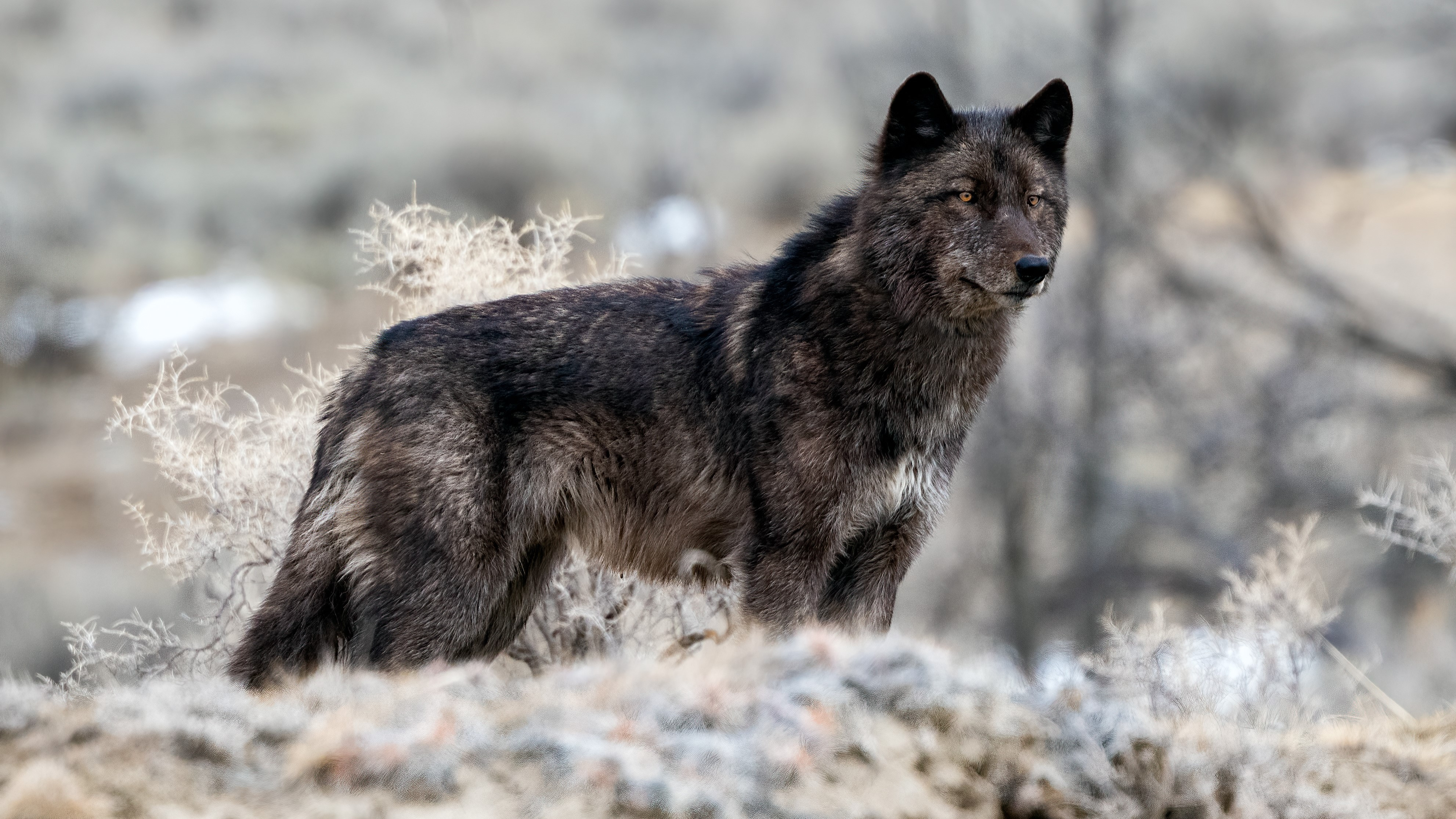
A man has been spotted at Yellowstone National Park pulling his shirt off and chasing a wolf out of the Lamar Valley. The incident was captured by another park visitor, photographer Derek Neilsen, who was enjoying watching the animals until they were disturbed.
"I spotted a gorgeous black wolf making his way up the valley," Nielsen said. "I also spotted this fool who decided to take his shirt off and chase the wolf up the hill. Don't be an idiot like this guy. I wish a ranger had seen this. Report these kind of people to the wildlife management team. Please don't harass the wildlife. They have enough to deal with from humans.”
It's hard to say from such a distance, but this may be the same man seen taking off his shirt and chasing bears at Yellowstone earlier this year. Back in June the National Park Service (NPS) said it was investigating the incidents, but there has been no news on its progress.
Deliberately disturbing wildlife at National Parks is a crime, and if convicted the man could face a fine and jail time. In 2021, a woman was sentenced to four days in jail and ordered to pay $2,000 in fines and fees after approaching a bear and her cubs, and refusing to move back even when the adult made a bluff charge.
"Wildlife in Yellowstone national park are, indeed, wild,” said Bob Murray, acting US attorney for Wyoming, at the time. “The park is not a zoo where animals can be viewed within the safety of a fenced enclosure. They roam freely in their natural habitat and when threatened will react accordingly."
Black wolves at Yellowstone
Black wolves are rare in most parts of the world, but they are common in some parts of North America, including Yellowstone, where almost half of all wolves are black. The NPS explains that black and gray animals have their own strengths and weaknesses (black wolves are more resistant to canine distemper, while gray wolves are more aggressive during mating season), which seems to have balanced the population.
There are no records of wolves attacking people in Yellowstone, but the NPS still urges caution. Wolf attacks have happened in other parts of the US, and disturbing the animals can threaten their survival. Two wolves have been euthanized at the park (one in 2009 and one in 2011) after becoming habituated and learning to approach peopl for food.
"Like coyotes, wolves can quickly learn to associate campgrounds, picnic areas, and roads with food," the NPS explains. "This can lead to aggressive behavior toward humans.
"Wolves in Yellowstone occasionally become habituated to human or vehicle noise. Biologists successfully aversive-condition several wolves each year. Visitor education is important to help keep wolves wild and wary of humans."
For more advice, see our guides what to do if you encounter a wolf and wildlife safety: eight tips for unexpected encounters.
- The best binoculars: enjoy watching wildlife from a safe distance







